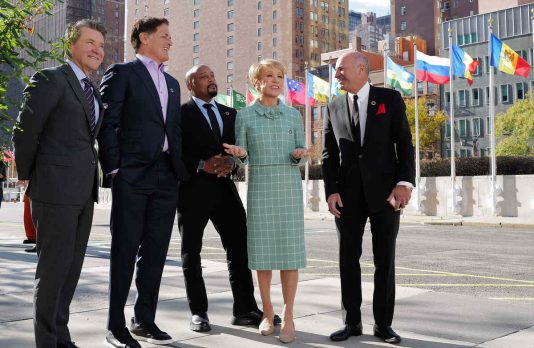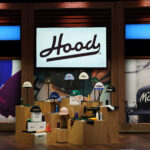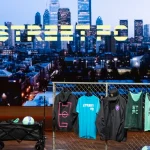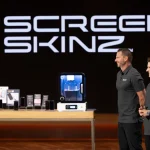
Highlights
- No reality TV show is complete without scandals and fights, and Shark Tank is no exception.
- While it may be a business show at its core, Shark Tank has also witnessed some fierce bidding battles in its 16-year history.
- Over 16 seasons, pitches like Scholly, Lavabox, and Brightwheel are some of the products for which the Sharks competed against one another and made for unforgettable TV moments.
Over the past decades, the concept of reality shows has garnered a momentous and unprecedented attention from viewers globally. Introduced as a medium that presents reality, it has been made into different genres, including talent, lifestyle, business & entrepreneurship, romance, and so on. One such reality show with business pitches is Shark Tank.
But what makes viewers so hooked? Maybe it’s the drama. Or perhaps it’s the chance to escape our everyday routines by watching someone else’s high-stakes moment unfold.
What do you think is the primary reason behind this? Has it become a new mode of escape from the monotonous lifestyle we all lead? Probably yes.
Mantra for a Successful Reality Show
If someone had asked what the secret sauce was that led to the success of reality shows a decade back, your answer would have most likely been impressive storytelling, stories that seem relatable, inspiring journeys, and one of our own.
However, in recent years, there have been huge transformations in this backdrop. It’s about the drama. Fights, scandals, and shock value keep viewers coming back for more.
Viewers enjoy fights, scandals, and arguments between contestants and judges. Producers are very well aware of this, and hence don’t miss any chance to air episodes that involve any such scenario. Shark Tank is no different either.
In its history of 16 seasons, there have been numerous instances when the Sharks have been at loggerheads over bidding for a particular product/company.
3 Shark Tank Bidding Wars That Took Everyone by Surprise
Here is a list of the most unexpected Shark Tank bidding wars that will blow your mind. These three pitches have the most intense, must-watch moments when the Sharks battled hard to win over entrepreneurs, and things got personal.
1. Scholly
One of the explosive bidding wars in Shark Tank history came during the pitch for Scholly, a scholarship-matching app, created by college student Christopher Gray. The final deal on Scholly caused three of the Sharks to walk out of the set, which, of course, the audience loved.
Quick Facts
- Founder: Christopher Gray
- Investment Asked: $40K for 15% equity
- Product: Scholarship-matching app for students
- Sharks Interested: Lori Greiner, Daymond John
- Drama: 3 Sharks walked off the set after the deal
- Outcome: Acquired by Sallie Mae; over $30M in revenue
Christopher Gray, an undergraduate student from Pennsylvania, came up with his indigenously designed app named Scholly with an offer of $40K for 15% equity.
The app attempts to aid students struggling with high college fees by scouting scholarship programs, which can eventually help them get away with loans.
Using their mobile phones, learners simply need to fill in basic details like their state’s name and GPA to find a scholarship match based on their potential.
Before Christopher could talk more in detail, Lori Greiner stopped him midway and agreed to invest as per his offer, i.e., $40K for 15% equity. This didn’t go well with the other Sharks, who were baffled and seemed pretty upset.
They expressed the same to her, but then Daymond John hopped on and made the same offer to Christopher. This is when the arguments escalated.
Despite the raised concerns, Lori and Daymond joined hands and proposed a partnership investment of $20K each for 15% equity.
Christopher couldn’t resist and said yes to the offer. After he went, the other three sharks furiously walked out of the set.
Scholly did pretty well after its appearance on Shark Tank. It has earned over $30 million within 9 years since then. In 2023, Sallie MAE acquired Scholly in a multi-million-dollar deal.
2. Lavabox
Josh Thurmond, an aspiring entrepreneur and Chief Eruption Officer for Lavabox Portable Campfires, came up with an offer of $200K for 10% equity in his company.
Citing the devastation created by campfires, he reiterated how his product is revolutionary with its clean, easy-to-use, and safe nature.
Quick Facts
- Founder: Josh Thurmond
- Investment Asked: $200K for 10% equity
- Product: Portable propane campfire in an ammo can
- Sharks Interested: Kevin O’Leary, Lori Greiner, Daymond John
- Drama: Sharks clashed over royalties and equity
- Outcome: Lori’s deal didn’t close, but the company hit $1.2M in sales by 2022
John further went ahead with his product demo by popping the top of its ammo can, checking the propane, lighting the lighter, and turning up the gas. And Boom!! The fire gets lit.
Intrigued by Josh’s pitch, the Sharks began their questions about his background, total sales, mode of sale, and so on.
Impressed by his answers, Kevin O’Leary made the first offer of $200K for 20%. Daymond John was the second Shark to make the exact same offer as O’Leary.
Next was Lori Greiner, who offered $200K for 15% equity, but there was a catch. She demanded a royalty of 75 cents per product until she got paid back the $200K.
Hearing this, Daymond and Kevin jumped in and started to dissuade Josh from making the offer with their sarcastic remarks.
Following this, Josh asked if Lori would be interested in 12% equity, to which she countered with a demand of 12.5%.
Seeing Josh’s slight inclination towards Lori’s offer, Daymond very cleverly described himself as an “outdoor person” and made a second offer of $200K for 15% equity with no royalty, thus showing that he would be the ideal investor, not the others.
Then came Kevin again with $200K for 10% equity. Mark Cuban didn’t like this at all. The argument further escalated between Daymond, Lori, and Kevin. But in the end, Josh picked Lori.
The deal with Lori never closed, but Josh kept hustling and managed to touch the revenue mark of $1.2 million by 2022 with some help from Shark Tank. It reached 2 million by 2023.
3. Brightwheel
If we’re talking about the most unexpected Shark Tank bidding wars, the Brightwheel episode has to be on the list.
Quick Facts
- Founder: Dave Vasen
- Investment Asked: $400K for 4% equity
- Product: Communication and admin app for preschools
- Sharks Interested: Mark Cuban, Chris Sacca, Kevin O’Leary
- Drama: Heated exchange between Chris and Mark
- Outcome: Mark & Chris closed a $600K deal; Brightwheel is now valued over $600M by 2025
Dave Vasen, founder and CEO of Brightwheel, a mobile app for preschools, daycares, and families, came up with an offer of $400K for 4% equity stake.
In his pitch, Dave gave a product demo by showcasing how the app streamlines operations between parents and teachers and how they can manage the kids better this way.
Almost every Shark, except Daymond John and Barbara Corcoran, expressed their interest in the product. Everything seemed fine until now.
But then he proposed an idea to Chris Sacca, asking if he would like to team up with any one of the Sharks. To this, Chris replied that he doesn’t think any of the rest had anything on their tables through which they could make this partnership soar.
This didn’t go well with Mark Cuban, who aggressively asked him, “Are you serious?” Further, he targeted his tech background and asked him to get out of his bubble if he wanted to generate brand value by teaming up with people other than those in “Silicon Valley.” This incident triggered one of the most heated debates of the season.
Right after this heated argument, Kevin O’Leary, bearing previous experience in the educational space, asked Dave if he was looking for someone with a multi-billion-dollar access in his space; he was the ideal pick for it. He thereby offered $400K at a 4.85% equity stake.
Eventually, the most surprising aspect of the episode came after all the bickering and arguments. Mark and Chris sealed the deal together with a joint offer of $600K for a $9 million valuation.
Over the years, with additional investments from Mark Cuban, Chris Sacca, Mark Zuckerberg’s investment firm, Next Play Ventures, Daniel Sheparo, etc., the valuation of Brightwheel stands between $600 million and $735 million as of 2025.
Conclusion
Shark Tank brings together business prodigies at one platform who come up with their share of experience and understanding of their particular industry. It’s normal and humane not to always have mutual agreements on everything.
Additionally, the chase for hunting the best deals results in a lot of ego clashes, which ultimately leads to “bidding wars.” From heated negotiations to walk-offs and surprise alliances, these moments prove one thing: when the Sharks smell a good deal, they’ll fight for it.
References
- Christopher Gray, Forbes
https://www.forbes.com/profile/christopher-gray/ - Dave Vasen, Crunchbase
https://www.crunchbase.com/person/dave-vasen - Mark Cuban called this CEO a ‘great example’ for any ‘Shark Tank’ contestant—he landed 3 offers and a $200,000 deal, CNBC, Ashton Jackson
https://www.cnbc.com/2023/04/03/mark-cuban-lavabox-ceo-is-great-example-for-shark-tank-contestants.html




















